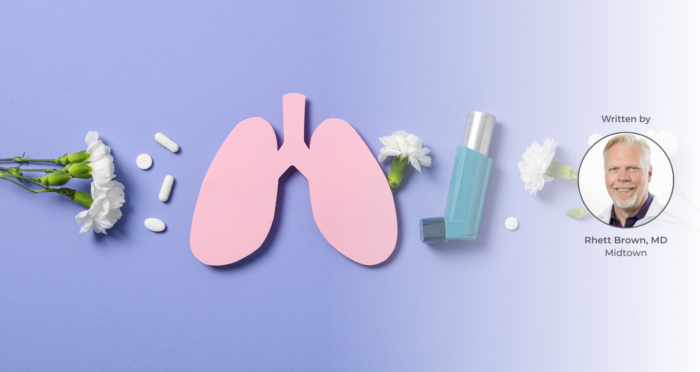Springtime in North Carolina brings the promise of warmer weather, blooming flowers, and outdoor adventures. However, for many, it also heralds the onset of dreaded spring allergies. While some may dismiss their symptoms as a mere inconvenience, knowing when to seek medical help for spring allergies is crucial for effective management and relief. So, what are the signs that indicate it’s time to seek professional assistance?
Understanding Spring Allergies
Before delving into when to seek medical help, let’s briefly recap what spring allergies entail. Spring allergies, also known as seasonal allergic rhinitis, occur when the body’s immune system reacts to allergens present in the air, typically pollen from trees, grasses, and weeds. In North Carolina, common culprits include oak, pine, and cedar trees, along with various grass species like Bermuda and fescue.
Recognizing the Signs
Spring allergies can manifest in a myriad of symptoms, ranging from mildly irritating to downright debilitating. Here are some common signs to watch out for:
Persistent Sneezing: If you find yourself sneezing more frequently than usual, especially in outdoor settings, it could be a sign of spring allergies.
Runny or Congested Nose: Nasal congestion, accompanied by clear or watery nasal discharge, is a hallmark symptom of allergic rhinitis.
Itchy, Watery Eyes: Allergic conjunctivitis often presents with itching, redness, and excessive tearing of the eyes, particularly in response to allergen exposure.
Scratchy Throat or Cough: Postnasal drip resulting from allergic rhinitis can lead to throat irritation and coughing, especially upon waking or during the night.
Fatigue or Irritability: Allergy symptoms can disrupt sleep patterns, leading to daytime fatigue, irritability, and difficulty concentrating.
Worsening of Asthma Symptoms: Individuals with asthma may experience exacerbations of their respiratory symptoms, such as coughing, wheezing, and shortness of breath, during allergy season.
When to Seek Medical Help
While many people can effectively manage their spring allergies with over-the-counter medications and lifestyle modifications, there are instances where professional medical intervention is warranted. Here are some indicators that it’s time to consult your primary care provider:
Severe or Persistent Symptoms: If your allergy symptoms are severe, persistent, or significantly impacting your quality of life despite self-care measures, it’s essential to seek medical evaluation. This includes symptoms like intense facial pain or pressure, severe headache, or persistent fever.
Inadequate Response to Treatment: If over-the-counter antihistamines, decongestants, or nasal sprays fail to provide relief, your primary care provider can offer alternative treatment options tailored to your specific needs.
Underlying Health Conditions: Individuals with pre-existing health conditions such as asthma, chronic sinusitis, or immune disorders may be at higher risk of complications from untreated allergies. Your primary care provider can help manage these conditions and minimize their impact on your overall health.
Potential Allergy-Related Complications: In some cases, untreated allergies can lead to complications such as sinus infections, ear infections, or exacerbations of asthma. Prompt medical evaluation can help prevent these complications and ensure optimal management of your allergies.
Allergic Reactions: If you experience symptoms of a severe allergic reaction, known as anaphylaxis, such as difficulty breathing, swelling of the face or throat, or a rapid heartbeat, seek emergency medical attention immediately.
The Role of Allergy Testing
In cases where allergy symptoms are severe, persistent, or difficult to manage, your primary care provider may recommend allergy testing to identify specific allergens triggering your symptoms. Allergy testing can help tailor your treatment plan more effectively, whether through allergen avoidance strategies, immunotherapy (allergy shots), or targeted medication therapy.
Spring allergies can be more than just a seasonal nuisance—they can significantly impact your quality of life if left untreated. Knowing when to seek medical help for spring allergies is key to managing your symptoms effectively and preventing potential complications. If you’re experiencing severe, persistent, or worsening allergy symptoms, don’t hesitate to reach out to your primary care provider for expert guidance and personalized treatment options. Your health and well-being are our top priorities, and we’re here to help you breathe easier this allergy season.




